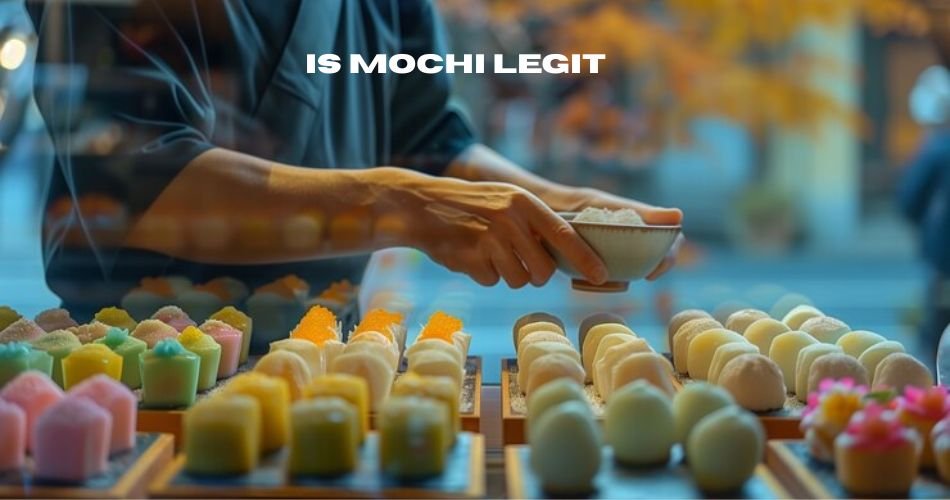In today’s interconnected world, trust is everything. Whether you’re shopping online, investing in digital assets, or ordering food, one question always lingers: is this legitimate? Mochi, a name once primarily associated with a beloved Japanese dessert, has expanded into various industries, including e-commerce, cryptocurrencies, and food delivery services. This diversification naturally raises questions about its authenticity and reliability. When people ask, “Is Mochi legit?” they want reassurance that the brand or platform they’re dealing with is trustworthy, safe, and worth their time or money. This article dives deep into understanding Mochi in all its forms and helps you determine what’s genuine and what’s not.
The Origins of Mochi: More Than Just a Sweet Treat
The term mochi originally describes a traditional Japanese rice cake made by pounding steamed glutinous rice until it becomes soft, sticky, and chewy. This food has been enjoyed for centuries and carries cultural significance during celebrations like Japanese New Year. Globally, mochi is loved for its unique texture and versatility, appearing in ice cream, pastries, and other desserts. As a food item, mochi is unquestionably legitimate—it’s real, delicious, and safe. But what happens when the word “mochi” is used in other contexts?
Mochi as a Brand Name: Expanding Horizons and Rising Questions
In recent years, Mochi has become a popular brand name or project title across multiple sectors. From online marketplaces selling crafts and digital products to blockchain-based tokens and food delivery apps, the name is everywhere. While this diversity is exciting, it also creates confusion. When you hear about “Mochi” in a crypto discussion or see a Mochi app promising quick deliveries, it’s natural to wonder if these entities live up to their promises. Unlike the traditional food, these newer Mochi ventures don’t have centuries of goodwill behind them, so consumers and investors must be cautious.
Why People Are Concerned About Mochi’s Legitimacy
It’s not unusual for new brands to face skepticism, especially in crowded digital markets filled with scams and fly-by-night operators. Mochi’s use in sectors known for fraud—like cryptocurrency or online sales—makes people wary. The question “Is Mochi legit?” often comes up because potential customers want to avoid wasting money or falling victim to scams. The name Mochi doesn’t automatically guarantee authenticity, so verifying each business or service is crucial.
Spotting Legitimate Mochi Businesses: Key Indicators
How do you know if a Mochi-related business is the real deal? There are several telltale signs that can help you gauge legitimacy. First, look for transparency—does the company provide clear contact details, a physical address, and reliable customer service channels? Trustworthy companies typically have an active customer support team ready to assist. Next, check for reviews and testimonials from verified buyers. Positive feedback across multiple platforms usually signals reliability. Security is another critical factor. Legitimate websites use HTTPS protocols and trusted payment methods like credit cards or PayPal, which offer consumer protection. Finally, clear refund and return policies indicate that the business values customer satisfaction and is willing to stand behind its products or services.
Common Red Flags That Suggest a Mochi Business May Not Be Legitimate
On the flip side, certain warning signs often point to potential scams. If a Mochi platform offers deals that sound too good to be true—like massive discounts with no strings attached—be skeptical. Scammers often lure victims with unrealistic promises. Another red flag is poor communication. If customer inquiries go unanswered or you receive vague, unhelpful responses, consider it a warning. Additionally, websites that are poorly designed, contain broken links, or lack professional polish often indicate a lack of genuine investment in the business. These issues can mean the operation is amateurish or worse, fraudulent.
How to Research and Verify Mochi Services Before You Commit
Before engaging with any Mochi service—whether buying, investing, or ordering food—take the time to do your homework. Start by searching for unbiased reviews and discussions on forums, social media, and review websites. Avoid relying solely on testimonials posted on the company’s own site, as these can be cherry-picked or fake. Check if the business is officially registered with relevant government authorities; many countries provide online databases for this. When making payments, use secure methods that offer dispute resolution, such as credit cards or payment platforms with buyer protection. Avoid wire transfers or prepaid gift cards for initial transactions as these are commonly exploited by scammers.
Case Study: Mochi Marketplaces—Separating the Wheat from the Chaff
Examining Mochi-branded online marketplaces gives insight into their varied legitimacy. Some platforms operate transparently, provide clear product descriptions, and fulfill orders reliably, earning positive reputations. Others, however, suffer from poor customer experiences—delayed shipping, low-quality products, or unresponsive support. This contrast highlights why it’s essential to read current reviews and approach new or unknown Mochi marketplaces cautiously. Don’t hesitate to ask for recommendations from trusted sources or communities before purchasing.
The Influence of Social Media on Mochi’s Reputation
In today’s digital age, social media presence plays a vital role in shaping a brand’s reputation. Legitimate Mochi businesses actively engage with customers on platforms like Instagram, Facebook, or Twitter. They respond to questions, address complaints openly, and share authentic content. Conversely, suspicious operations often have empty or inactive social media accounts, lack follower engagement, or display fake-looking reviews. Monitoring these channels can offer valuable clues about a Mochi business’s legitimacy.
Consumer Rights and Protection When Dealing with Mochi
Consumers aren’t helpless if they fall prey to a dishonest Mochi business. Most countries have consumer protection laws ensuring rights such as refunds, returns, and protection against deceptive advertising. Knowing your rights empowers you to act swiftly if a transaction goes wrong. Contact your payment provider to dispute charges, report the incident to consumer agencies, and warn others through online reviews. Staying informed helps foster a safer online marketplace for everyone.
Dealing With Mochi Scams: What You Should Do
If you discover that a Mochi service or product you engaged with is a scam, act quickly. Stop further payments and gather all transaction records and communications. Report the scam to authorities such as the Federal Trade Commission (FTC) or equivalent in your country. Sharing your experience on forums or social media can alert others and reduce the scammer’s impact. Remember, prevention is better than cure, so always research before trusting new Mochi brands.
Expert Insights on Evaluating Mochi’s Legitimacy
Industry experts recommend several practical steps to avoid falling victim to illegitimate Mochi operations. They stress the importance of patience—never rush into transactions based on pressure or hype. Verify all credentials and look for external endorsements or certifications. Cross-check claims on multiple independent platforms. These simple habits build a habit of critical thinking and protect your finances and data.
Looking Ahead: The Future of Mochi in Business and Technology
As the digital world evolves, Mochi-branded companies and products will likely continue to multiply, especially in innovative fields like blockchain, e-commerce, and food tech. For these ventures to thrive, they must prioritize transparency, security, and customer experience. The brands that do this will gain lasting trust and loyalty. Meanwhile, consumers should stay alert and informed, balancing enthusiasm with caution.
Conclusion
So, is Mochi legit? If you mean the traditional Japanese mochi dessert, absolutely yes—there’s nothing more real or delightful! But when it comes to Mochi as a brand name or service, legitimacy varies. Some Mochi businesses are trustworthy and professional, while others may be less so. The key is doing your due diligence: research, verify, and proceed carefully. By understanding what to look for and knowing your rights, you can confidently engage with Mochi-related products and services without falling prey to scams.





